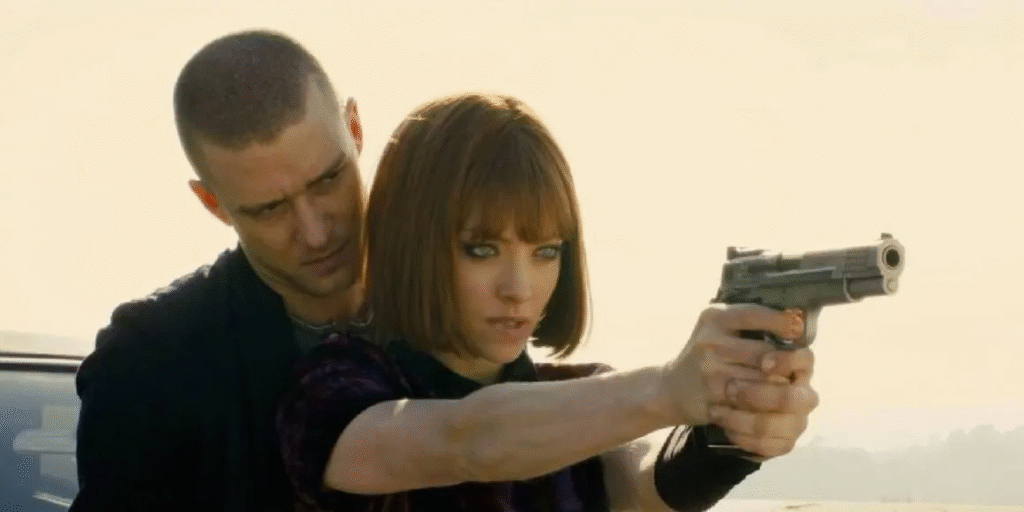Let’s start with a basic truth: most artists don’t come from wealth or privilege. They’re not nepo babies or kids of billionaires. Like many of us, they’ve lived real lives, struggled with rent, and had dreams crushed a few times.
This lived experience often shapes the stories they want to tell. They’re drawn to themes of struggle, injustice, and rebellion, and for better or worse, that leads them toward narratives that flirt with or outright promote communism, socialism, or anarchist ideals.
Every Artist Is a Rebellion, I’m No Different (Just Read This Blog, LOL)
Most young directors see themselves as rebels. It’s practically part of the job description. They believe art should challenge the system, and when they look at society, what they see is inequality, corruption, and exploitation.
So what kind of hero do they create? Usually someone who fights not just for themselves, but for the community. It sounds noble. But when you scratch beneath the surface, you often find a recycled communist or anarchist theme that glorifies the destruction of systems without offering real alternatives.
In some cases, the characters they create are simply reflections of the kind of person they were when they were young, or the type of people they admired and made into their ideals. Take Che Guevara, for example: he was a handsome young man who died fighting in the battle between communism and capitalism.
It’s no surprise that many rebellious young boys idolize him. But if you actually dig into his history, you’ll find he was no better than a modern-day terrorist, responsible for the deaths of many individuals.
Why Does Hollywood Keep Telling Woke, Communist, Anti-System Stories?
1. Rich People Make Easy Villains
It’s a storytelling shortcut, really. If your goal is to evoke sympathy and anger in the audience, then showing poor people suffering while the rich live in luxury is an easy formula. It instantly draws lines between oppressor and oppressed.
But the danger is when this gets oversimplified. Poverty is a complex issue, and blaming the rich for everything is not only lazy but historically dangerous. Think about Nazi Germany, where Hitler blamed Jews, many of whom were financially successful, for Germany’s economic woes. The outcome was genocide, not justice.
Hollywood tends to sanitize this idea and serve it with good cinematography and emotional music. But underneath, it’s often the same tactic: distract from systemic issues by pointing fingers at a single group. Rich = bad. Poor = good. End of story. That’s not just misleading; it’s manipulative.
2. Mass Appeal: Speak to the Majority
It’s basic marketing. Most people in the world aren’t rich. They’re working-class or struggling financially. So, when a movie centers on a poor protagonist taking on the system, audiences relate. It becomes more than just a film, it becomes validation for their frustrations.
Hollywood knows this. They know that when you make the downtrodden the heroes and turn the upper class into cartoon villains, you’re tapping into real resentment. And yes, it works. It gets shared, reviewed, and praised because it plays to the audience’s lived reality, whether it offers solutions or not.
3. Filmmaker’s Ego: Changing the World Through Every Frame.
Let’s be honest. A lot of these directors aren’t just making movies, they’re preaching sermons. They see themselves as visionaries, using art to reshape society.
And sometimes, they succeed in telling powerful stories. But more often, what we get are shallow, one-sided takes dressed up as intellectual critique.
They want to be remembered for saying something, even if it’s not fully thought through. That’s why you get five-minute monologues in otherwise entertaining movies that stop the plot dead just to rant about capitalism or morality. It’s less about storytelling, more about ego.
4. Social Commentary = Artistic Credibility
Directors and writers want to be taken seriously. They want critics to say their work is “important” and “groundbreaking.” So, throwing in controversial takes on economy, religion, gender, economics, or national identity becomes a tool, a shortcut to prestige.
It doesn’t matter if the story makes sense or not. As long as these directors are saying something ‘daring’, even if it’s incoherent, someone on Twitter will call them a genius. And that’s exactly what they want: validation and money, which is a bit ironic..
5. Controversy Sells (and Helps Careers)
Let’s not kid ourselves. The more controversial your work is, the more attention it gets. This is the age of hot takes and viral outrage. A movie that plays it safe might be good, but a movie that makes people fight online is guaranteed free publicity.
And in Hollywood, buzz equals opportunity. If your film causes headlines and hashtags, suddenly you’re the next big thing, even if your work is half-baked. Being provocative pays.
7. Hollywood Rewards Woke Messaging
Let’s be real, directors don’t keep pushing woke, anti-capitalist, or communist narratives because they’re risking their careers. They do it because Hollywood rewards them for it.
The system praises anything that looks “bold” or “progressive,” even if it makes no sense. Film festivals, award shows, critics, and production companies all throw support behind projects with the right political flavor. It’s not about storytelling anymore, it’s about signaling.
Ironically, these so-called rebels are fully supported by the system they claim to hate. They’re anti-elite on screen, but very pro-elite when it comes to money, fame, and red carpet treatment.
In short, being “woke” pays. That’s why the trend keeps going.
6. China: The Silent Puppet Master
Hollywood doesn’t just serve American audiences anymore. China is a massive market with billions of dollars in potential revenue. But China is also ruled by a one-party authoritarian regime that heavily censors the media.
Hollywood has adapted, self-censoring and sometimes quietly endorsing collectivist or authoritarian themes to stay in Beijing’s good graces. That means more stories about unity over individuality, systems over self-determination. And since money runs the show, nobody in Hollywood is going to call that out.
When Ideals Go Too Far In Movies
In Time

This movie had a great sci-fi premise and some entertaining moments. But look closer, and you’ll see it’s basically a manifesto. The evil elite hoard time.
The hero is a literal time thief redistributing wealth. It’s a communist fantasy. It turns a creative idea into a direct allegory for class warfare. Instead of a nuanced look at inequality, it chooses to say: the rich are evil, and the poor must revolt. That’s not storytelling, it’s ideological posturing with a cool aesthetic.
Fight Club
This movie is a classic, no doubt. Great direction, writing, and acting. But its ending, where they blow up buildings to erase debt, is basically anti-capitalist terrorism presented as catharsis. It suggests freedom comes from destroying the system entirely.
Tyler Durden isn’t just rebelling against consumerism, he’s selling the fantasy of total collapse. The movie critiques materialism, but it also romanticizes anarchy. It’s the kind of message that sounds deep when you’re 20 and disillusioned, but in reality, it’s shallow and dangerous.
Snowpiercer
Here’s where things get absurd. The movie starts off promising, showing a rigid class structure. But it ends in full-blown chaos: everyone dies, and we’re supposed to feel good that one poor kid survives? It’s the cinematic version of burning the house down to kill a rat.
It tells you that revolution must be violent and total, even if it means collateral damage. Instead of offering a vision of justice, it pushes destruction as the only way out. A deeply flawed and frankly irresponsible message.
I feel sympathy for the rich characters in this movie, as they were the ones who envisioned the train and invested their resources. Yet, the so-called ‘poor class,’ the freeloaders, resented both the conditions and the treatment they received.
Parasite
Brilliant filmmaking in terms of craft. Cinematography, pacing, acting, all top-tier. But the narrative heavily leans into class resentment. It frames the rich family as oblivious and morally weak, while the poor family, despite lying and cheating, is presented as relatable and justified.
It’s not just a critique of inequality, it borders on a call to undermine the system by any means necessary. Subtle, yes. But it plants a very specific seed: that the upper class deserves to be infiltrated, mocked, and, eventually, destroyed.
The Platform
This is one of those movies that slaps you in the face with metaphor. The people at the top gorge themselves, leaving scraps for those below. The message? Redistribution is the only moral path.
But instead of showing real solutions or exploring why people behave selfishly, it opts for nihilism. Violence, starvation, rebellion, all portrayed as inevitable outcomes of any unequal system. It’s heavy-handed and leaves no room for nuance.
Joker
Dark, gritty, and disturbing, but not in a good way. Arthur blames society for everything. He doesn’t take responsibility; he just lashes out. A classic case of a person with character issues. And somehow, the movie wants us to sympathize with that.
It’s not a character study, it’s a glorification of victimhood and vengeance. It suggests that when the world mistreats you, violence is not only understandable but justified. That’s not art. That’s dangerous messaging.
Sometimes, they cry in front of the camera; other times, they hurl insults at the opposing side of the political spectrum. And when all else fails, they quote old figures, simply to reinforce their victimhood ideology.
When I walked out of the movie theater with my three friends, I was the only one who could see through all the victimhood BS in Joker.
The Irony of Communist Ideals
Here are some quotes that sum up the whole mindset perfectly:
- “Everyone’s a socialist until they get a job.”
- “Everyone’s a communist until they earn their first salary.”
- “Everyone wants equality until it affects their paycheck.”
- “You’re a communist until you pay taxes.”
These quotes might sound like jokes, but they’re painfully accurate. A lot of these ideological messages fall apart the moment people face real-world consequences.
It’s easy to scream for equality when you have nothing to lose and everything to gain. Harder when it’s your income or assets on the chopping block.
Final Thoughts
Not every movie with social commentary is propaganda. Not every critique of capitalism is a communist attack. But when you see the same patterns over and over, rich = evil, poor = pure, destroy = liberate, it’s fair to ask questions.
Are these films pushing a perspective, or just selling rebellion because it’s trendy? Are they offering solutions, or just stoking outrage?
Hollywood has become a place where controversy is currency, where being radical is safer than being honest. And as long as that’s the case, don’t expect the stories to change.
Until then, keep your eyes open. The revolution might be televised, but it’s also sponsored by major studios and approved by censors in Beijing.









